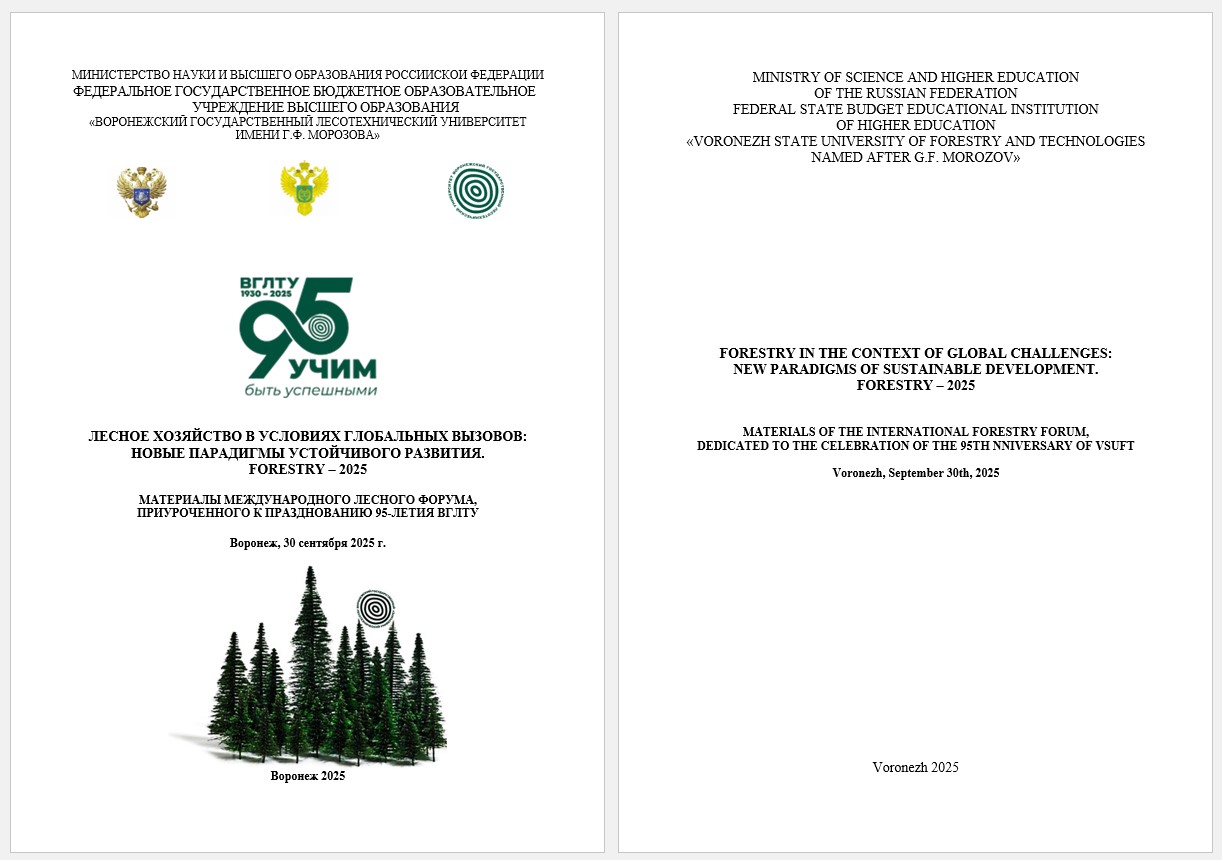Voronezh, Russian Federation
This study assesses the ecological and economic development of forestry in the Russian Federation based on decoupling analysis. The federal districts were ranked by the level of ecological and economic development of forestry and conclusions were made about the effectiveness of the ecological and economic policies of the regions in the field of sustainable forest management. The work proves that the decoupling effect has not yet been achieved in most districts of the Russian Federation, the increase in the volume of economic consumption of forest resources causes an increase in negative pressure on forest ecosystems. Therefore, the basic component of sustainable ecological and economic development of the country's forestry is movement in accordance with the trajectory of scientific and technological development and the determination of its priorities, which is of paramount importance, since the resources of the forest sector and the scientific and technical potential of forestry are limited, and the range of heterogeneous tasks in the field of scientific and technological development is extremely wide.
sustainable development, forestry, forest ecosystems, forest resources, decoupling effect
1. Fischer-Kowalski, M., Swilling, M., von Weizsäcker, E.U., Ren, Y., Moriguchi, Y., Crane, W., Krausmann, F., Eisenmenger, N., Giljum, S., Hennicke, P., Romero Lankao, P., Siriban Manalang, A., Sewerin, S. Decoupling natural resource use and environmental impacts from economic growth. A Report of the Working Group on Decoupling to the International Resource Panel. — Nairobi: UNEP. 2011; 15. URL: http://hdl.handle.net/10019.1/14631
2. Haapanen L., Tapio P. Economic growth as phenomenon, institution and ideology: a qualitative content analysis of the 21st century growth critique. Journal of Cleaner Production. 2016; 112(4); 3492-3503. DOI: https://doi.org/10.1016/j.jclepro.2015.10.024
3. Yashalova N.N. Analiz proyavleniya effekta dekaplinga v ekologo-ekonomicheskoy deyatel'nosti regiona. Regional'naya ekonomika: teoriya i praktika. 2014; 39(366); 54-61. URL: https://www.elibrary.ru/item.asp?id=22137505
4. Bobylev S. N. Ekonomika ustoychivogo razvitiya: uchebnik. — Moskva: KNORUS. 2021; 672. URL: https://eipc.center/wp-content/themes/fgau/publics/boblev_2021.pdf
5. Tapio P. Towards a theory of decoupling: degrees of decoupling in the EU and the case of road traffic in Finland between 1970 and 2001. Transport Policy. 2005; 12(2); 137-151. DOI: https://doi.org/10.1016/j.tranpol.2005.01.001
6. Zhou, Y., Hu, D., Wang, T., Tian, H., & Gan, L. (). Decoupling effect and spatial-temporal characteristics of carbon emissions from construction industry in China. Journal of Cleaner Production. 2023; 419; 138243. DOI: https://doi.org/10.1186/s13717-023-00435-y
7. Anikina I.D., Anikin AA. Ocenka effekta dekaplinga na primere regionov YuFO. Regional'naya ekonomika. Yug Rossii. 2019; 7; 4; 138-147. DOI: https://doi.org/10.15688/re.volsu.2019.4.13.
8. Ivanova A.V. Trendy organizacii innovacionnoy infrastruktury kak faktor ustoychivogo razvitiya lesnogo kompleksa. Aktual'nye napravleniya nauchnyh issledovaniy XXI veka: teoriya i praktika. 2024; 12; 1(64); 7-18. DOI: https://doi.org/10.34220/2308-8877- 2024-12-1-7-18.





